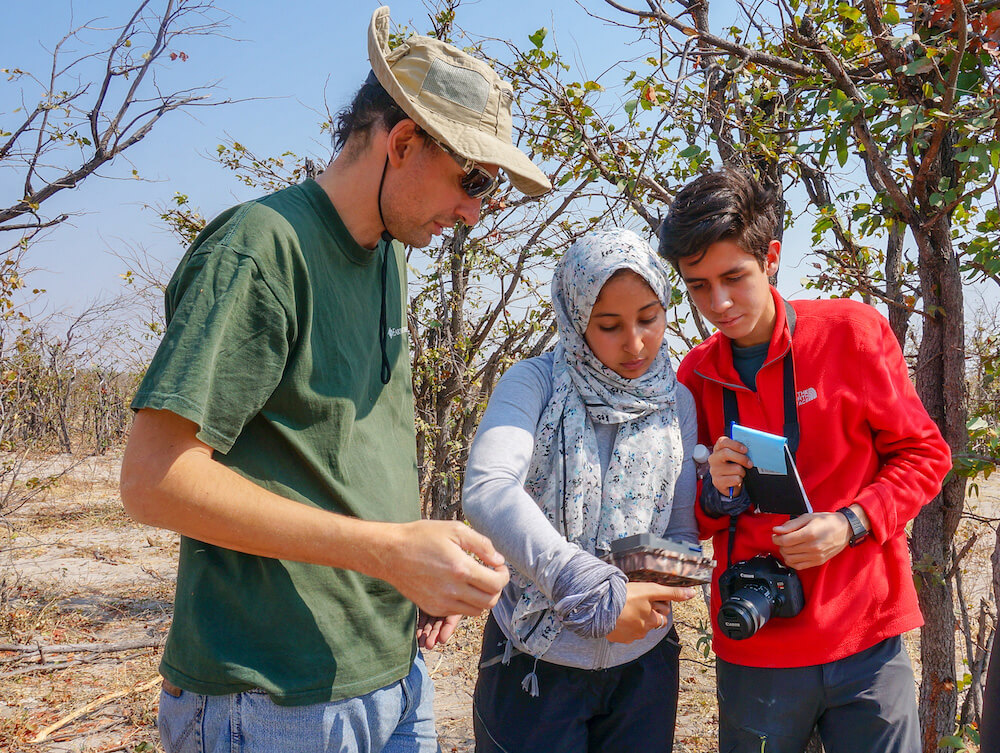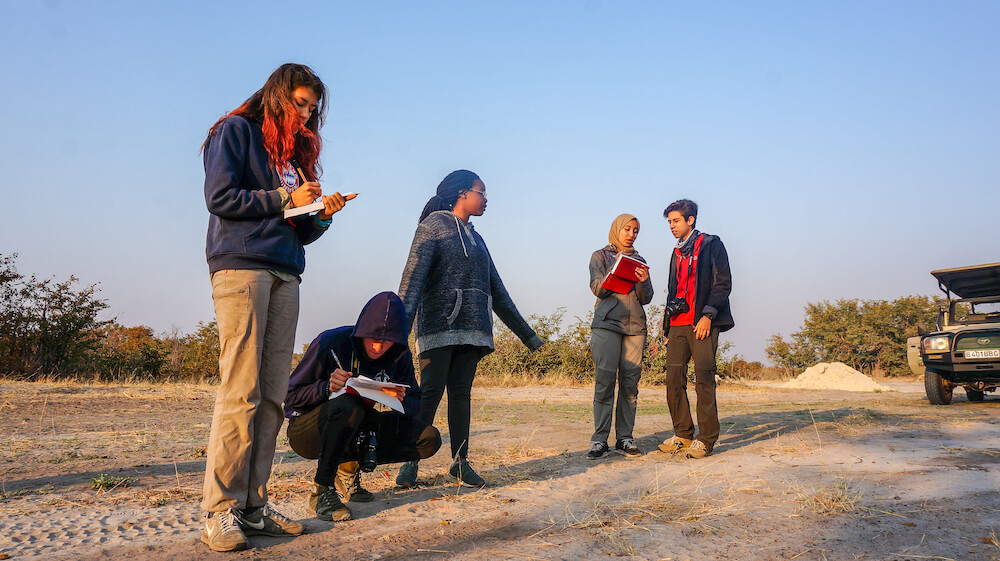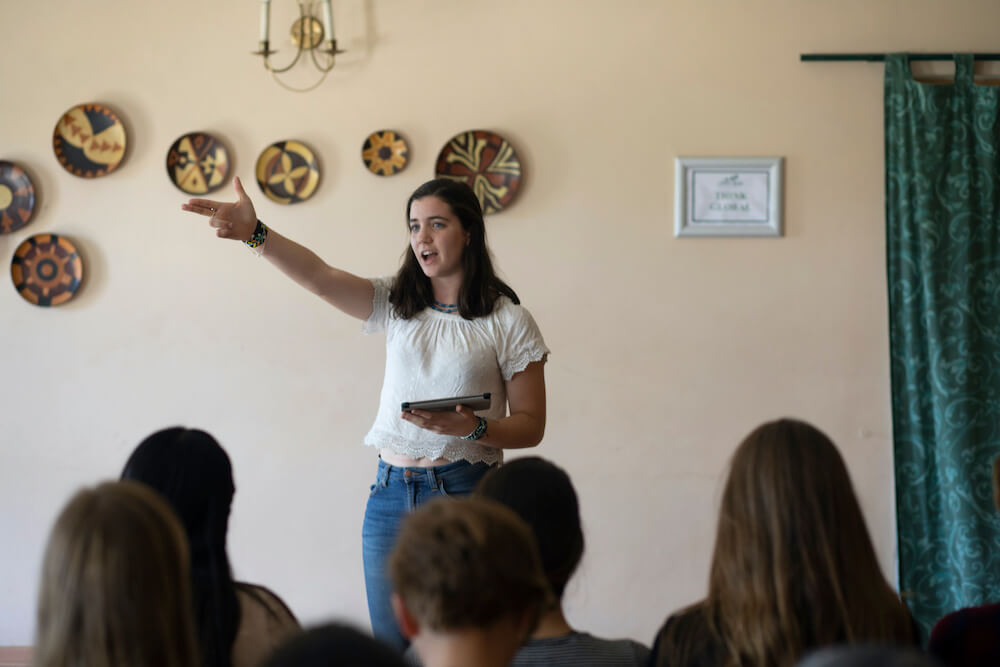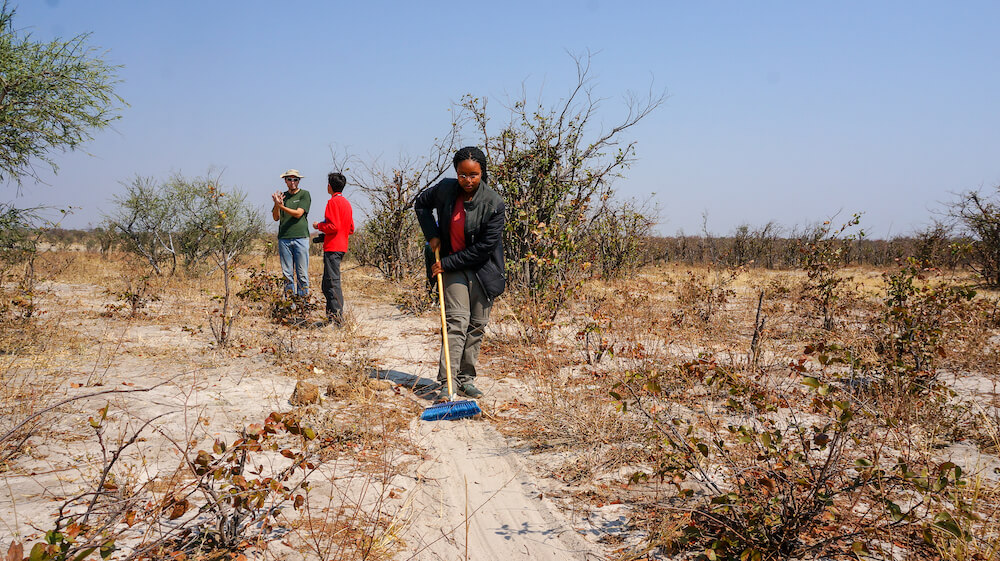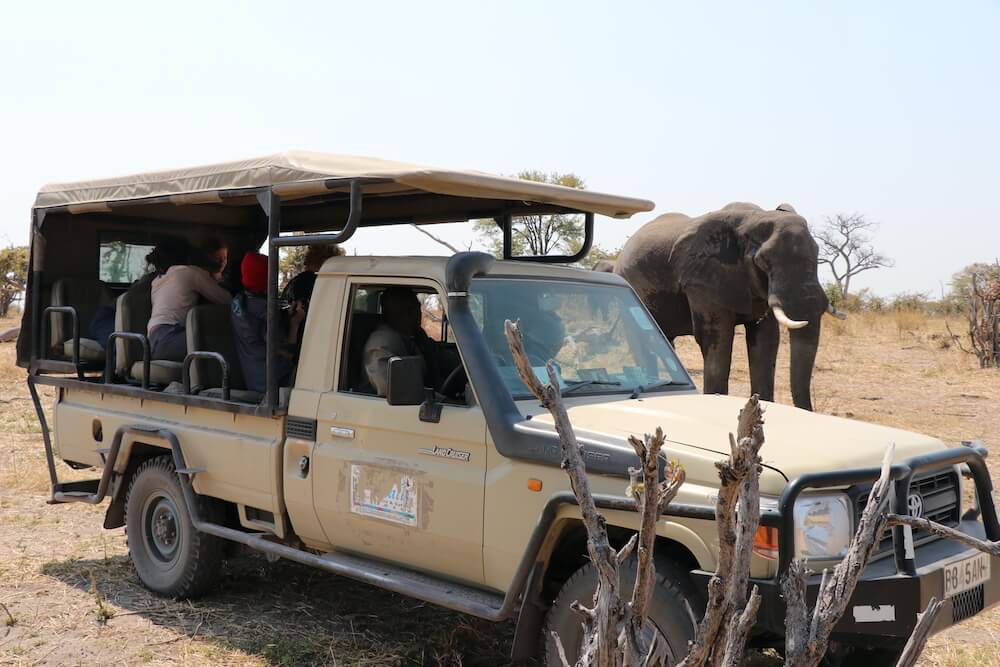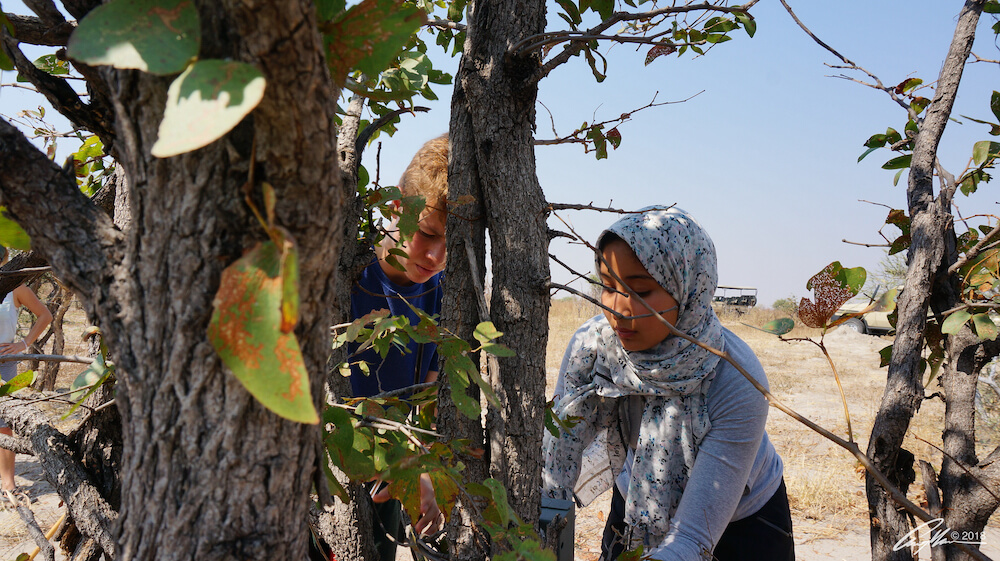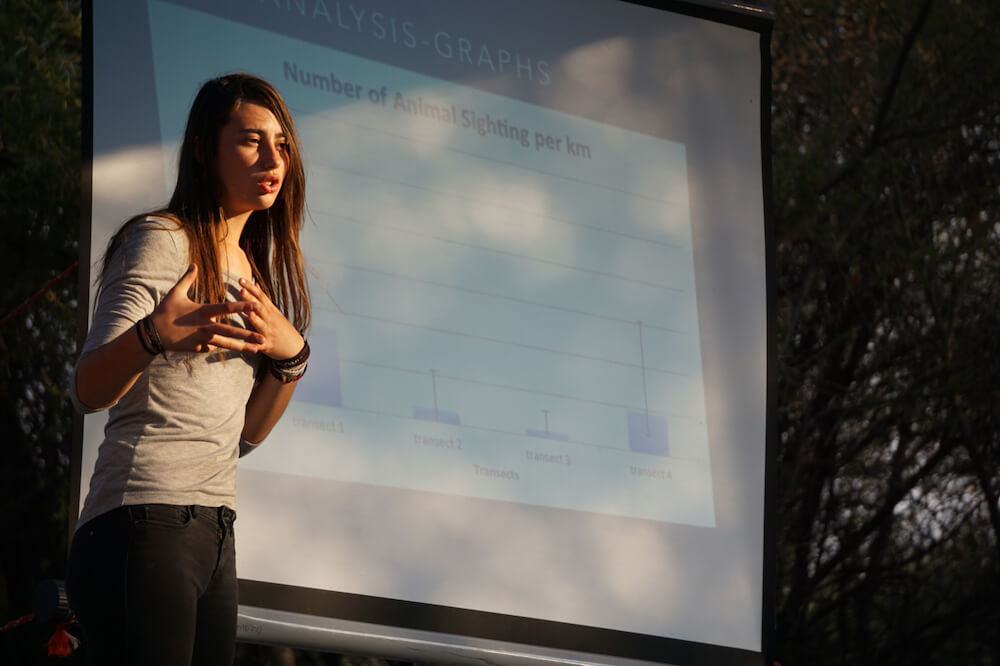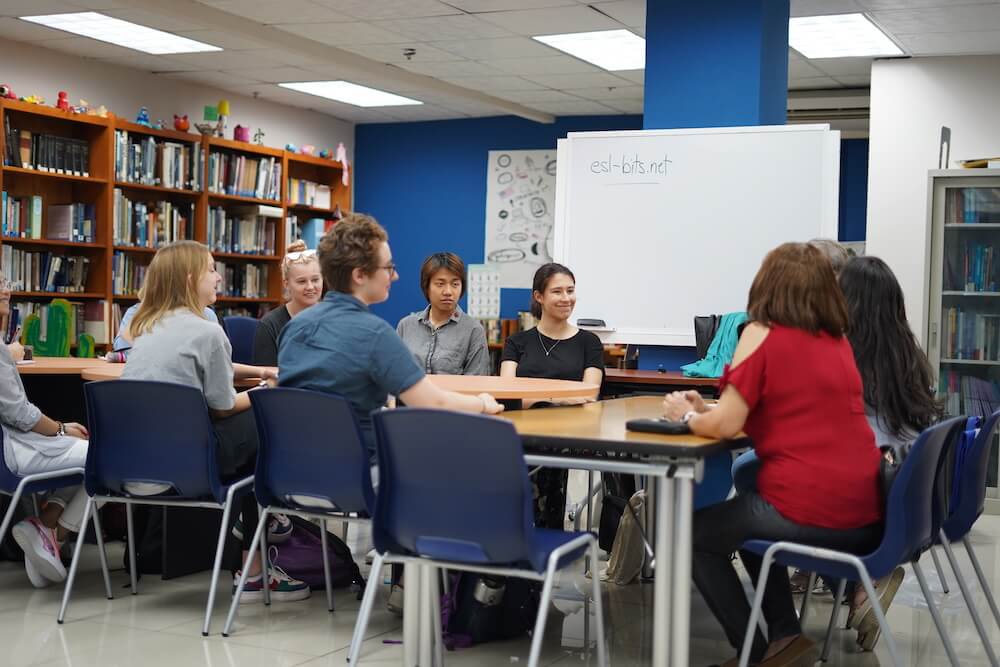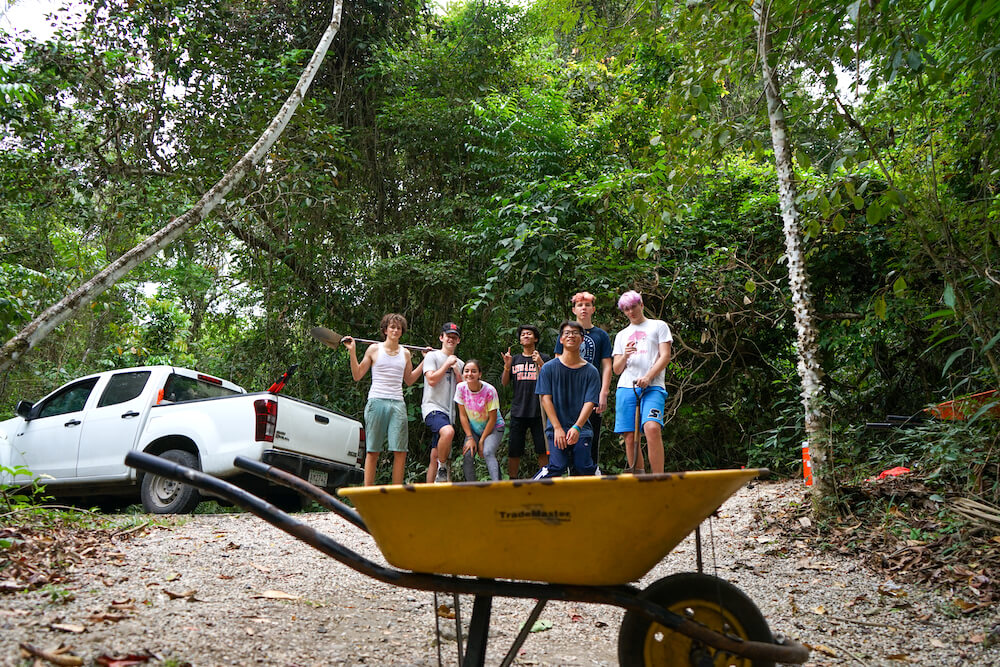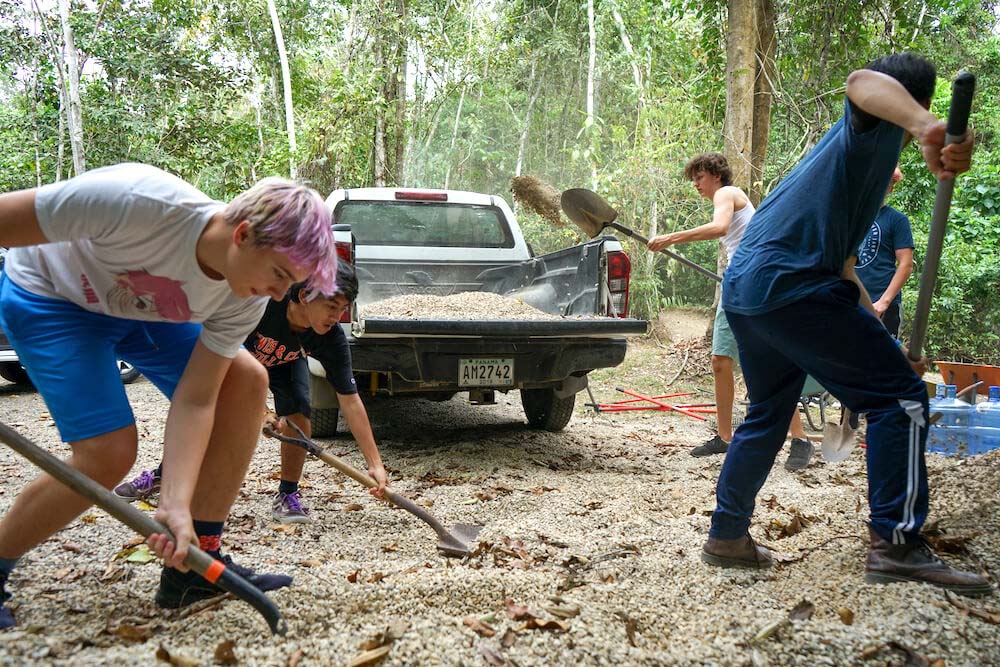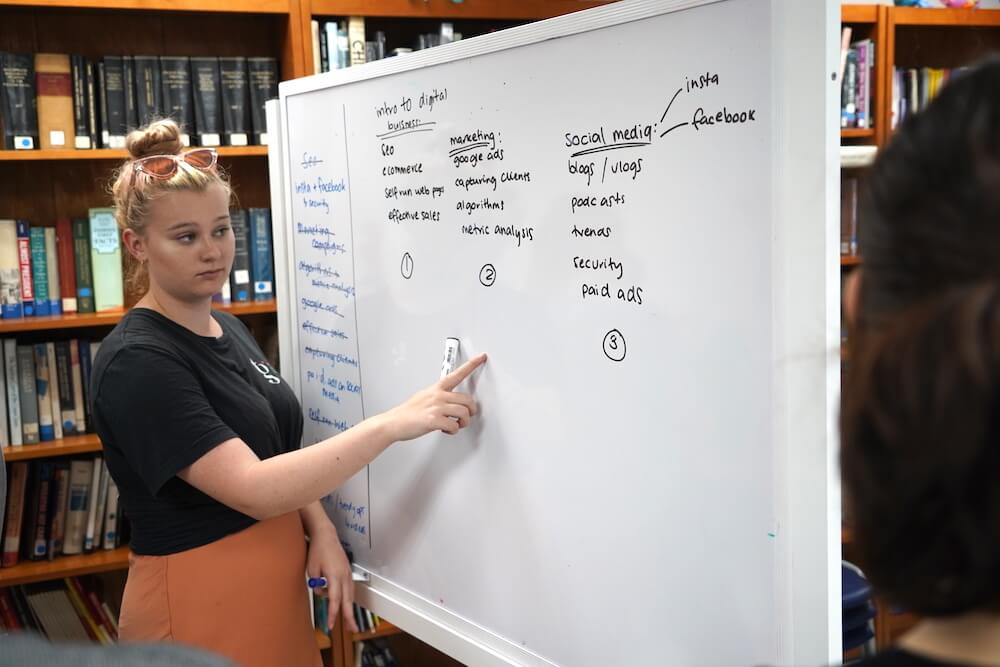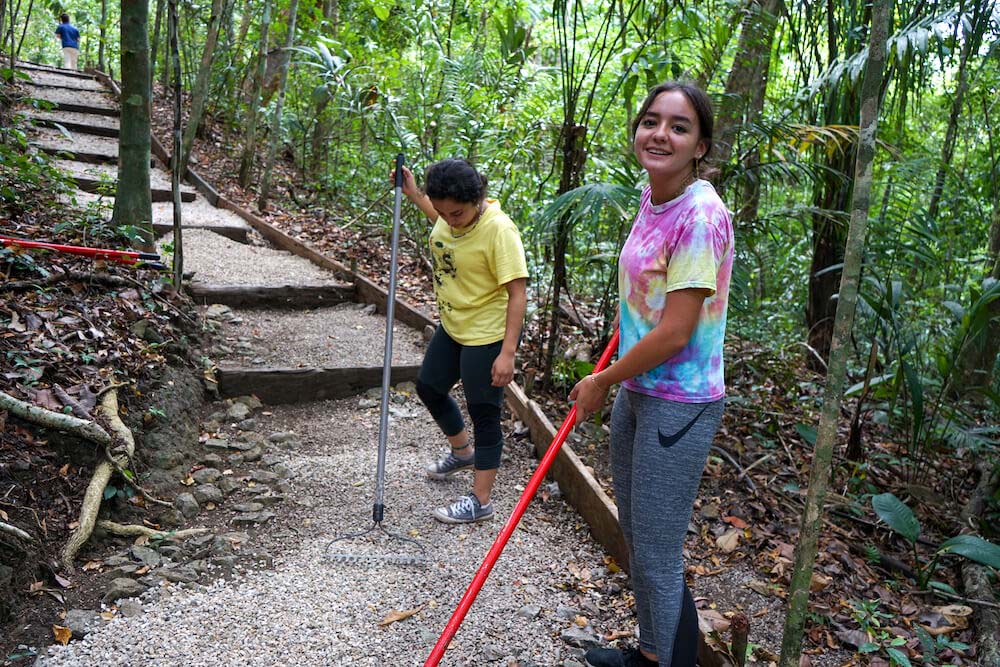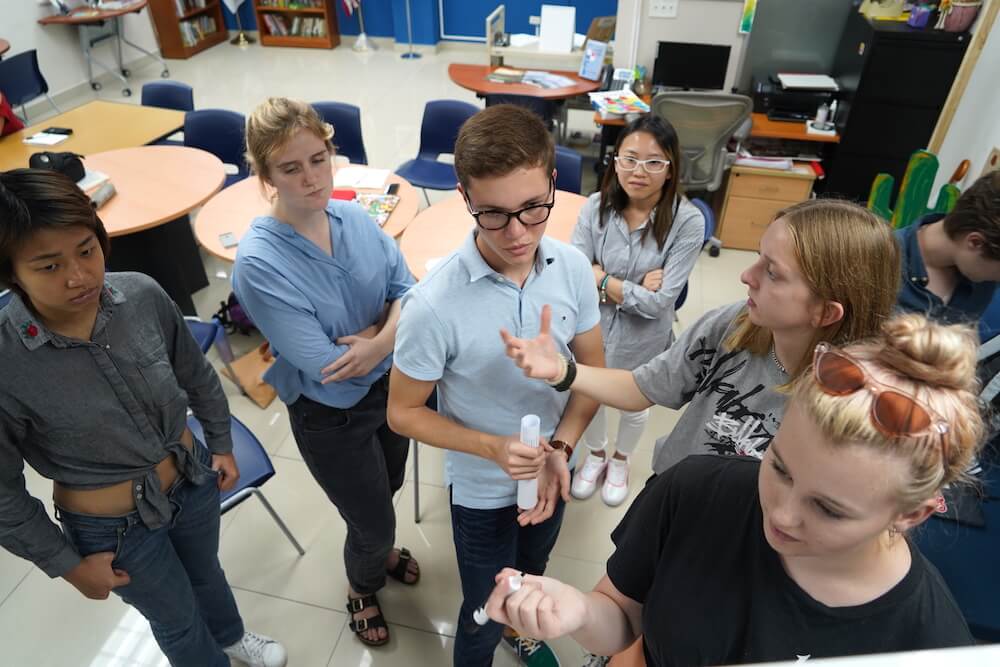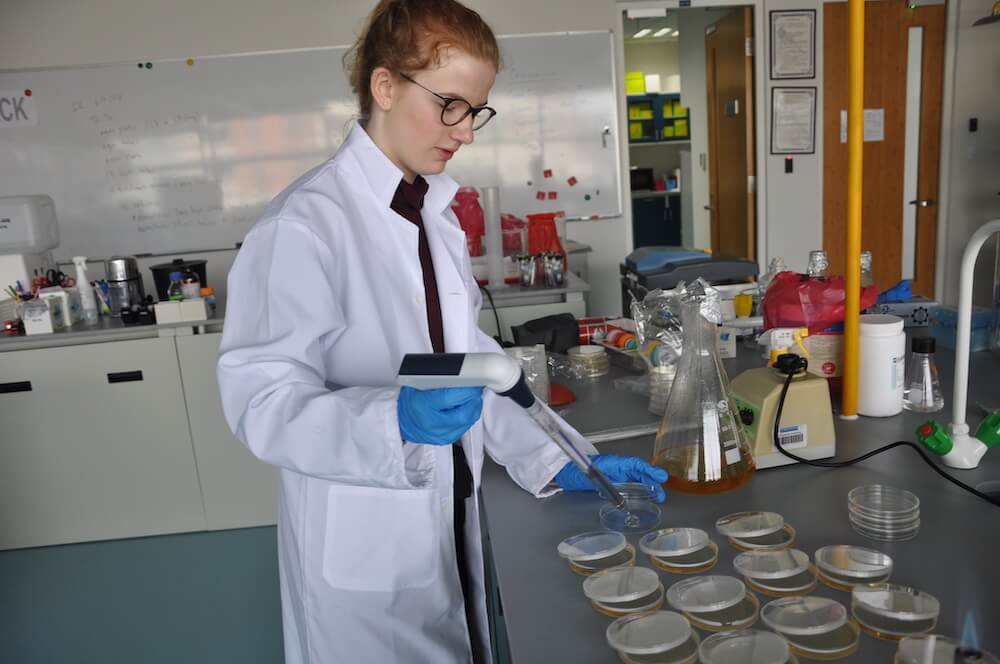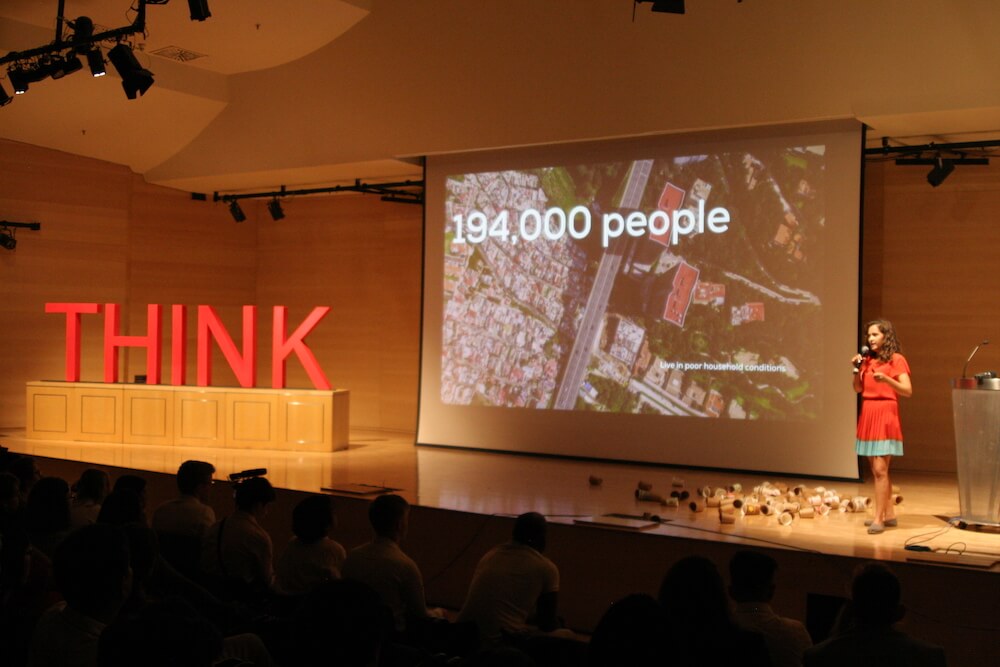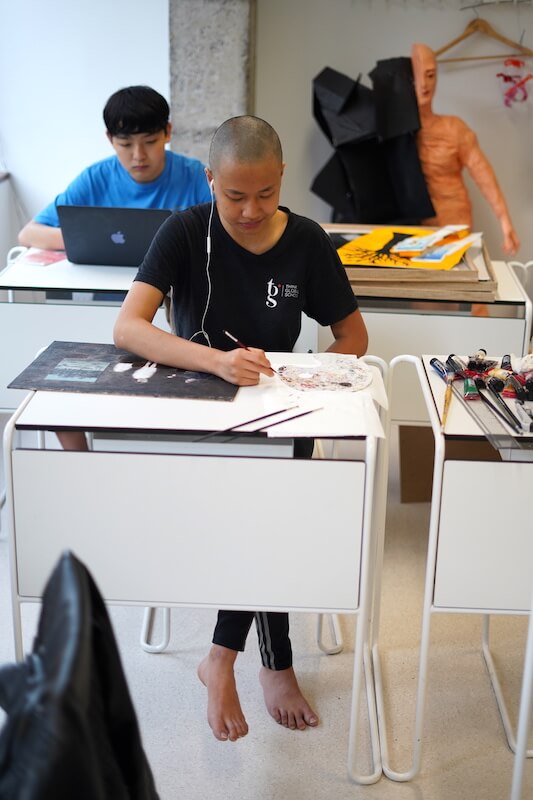1) Hi Nada, can you tell us what you've been up to since graduating from THINK Global School in 2022? Since graduating in 2022, I've been pursuing a passion I found while at TGS, sustainability, and I am currently majoring in engineering in renewable energy systems at Al Akhawayn University, in Ifrane, Morocco. But there is way more than that! I've had a chance also to explore the world of...
Read MoreLet’s start things off with a question:
When planning a vacation, do you opt for a trip where every aspect is meticulously planned? For example, do you only feel comfortable when there is a set amount of time for each activity — an hour here for lunch, two hours here for a modern museum, perhaps an hour for the botanical gardens before arriving at your all-important dinner reservation?
Or, on the other hand, do you prefer to explore as you go, enjoying the spontaneity of wandering around a foreign city with loose objectives in mind, giving extended amounts of time to the things that draw you in?
If you opted for the latter, congrats — we’re right there with you! But more importantly, what if we were to tell you that the question was, in fact, a metaphor for schooling.
For too long, traditional schooling has kept students on a strict schedule. Teachers lecture on a single subject for an hour before the bell rings and students shuffle off to their next siloed class. And despite students all possessing different ability levels, they are all subjected to the same grading criteria and academic expectations.
At THINK Global School, we opt for a more multifaceted approach that emphasizes autonomy, the mastery of skills, and purpose. Rather than listen to lectures, read textbooks, and take exams to assess their learning, students at THINK Global School participate either individually or in groups on multidisciplinary projects framed around driving questions.
It’s then up to the student or group to engage in an iterative process of investigation, creation, sharing, and reflection to complete the project in a manner that satisfies their goals. During this cycle, rather than serve as lecturers, our educators act as mentors and advisors, providing critical feedback and ensuring the project stays on track.
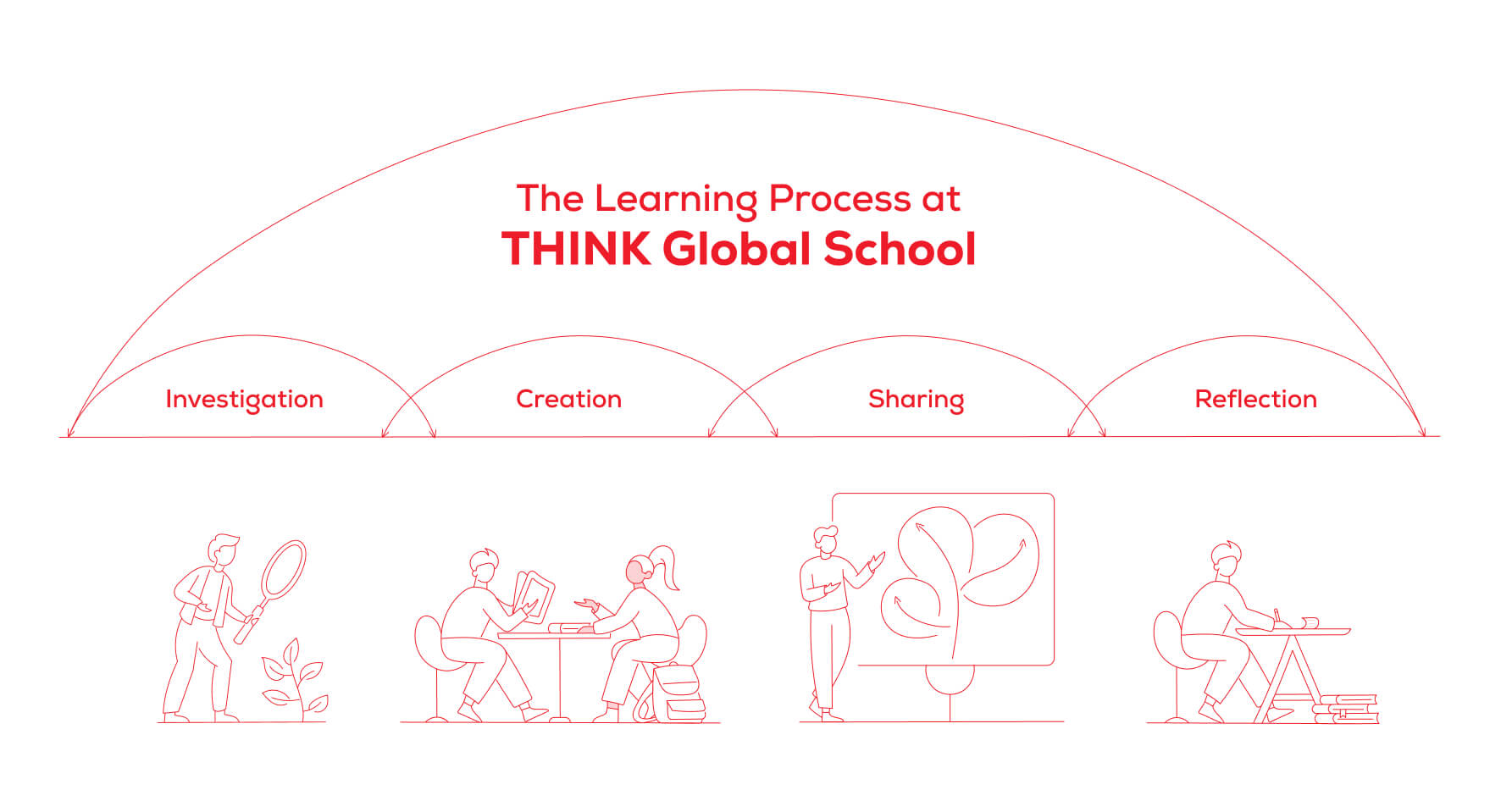
This approach to education is often messy and involves exploring the driving question from all angles. Through exploration and experimentation, students learn what works and what doesn’t, continuously expanding their knowledge of the subjects behind the driving question.
More importantly, project-based learning allows each of our students to draw on their strengths in arriving at a project conclusion. Many of our projects are done in groups and require our students to collaborate and delegate tasks, utilizing their individual skill sets to create high-quality work and successfully research and convey information. Collaboration and critical thinking are just two of the 21st-century skills our students develop during their THINK Global School education, and through quantitative research tools like The Hope Survey, we’ve confirmed that they are more engaged, feel a greater sense of belonging, and are more academically ready for what comes next, whether that’s university or hopping straight into the workforce.
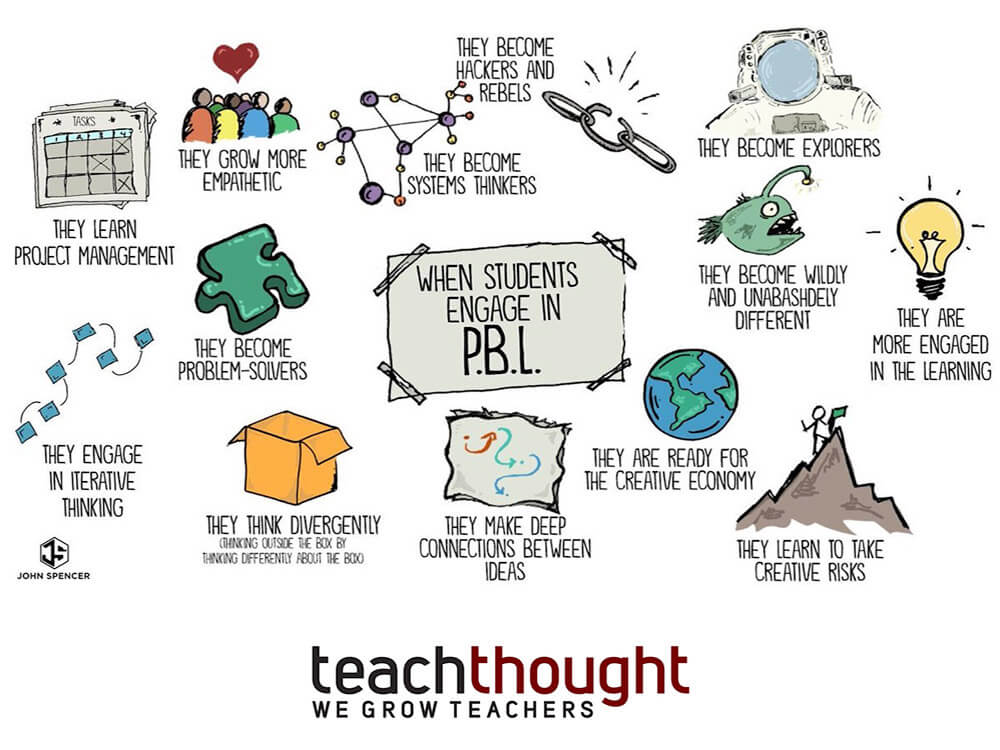
Image Credit: teachthought.com / Terry Heick
The Inclusion of Place Within Projects
Arguably the most brilliant aspect of project-based learning is its ability to be practiced anywhere. With a bit of planning regarding the driving question, establishing connections with local experts, and the purchase of any relevant materials, educators can create meaningful projects in their own backyards.
At THINK Global School, the intersection of project-based learning and place-based learning is what constitutes our unique selling proposition. We take the framework of project-based learning and apply a global context, allowing students to learn firsthand about the political, economic, socio-cultural, and environmental issues that directly affect the four countries they’ll travel to over the course of a school year.
As an example, here’s a look at a sample year’s worth of project options:
- In Botswana, students explore a driving question related to conservation by working with local experts to recognize animal tracks, sight predominant species, and identify vegetation as part of a long-term study sponsored by the Botswanan government. Students also apply that knowledge to the creation of a story that shares an environmental stewardship message to raise awareness about conservation.
- In India, students participate in modules centered around city planning, understanding and applying mathematical concepts in an Indian context, and bringing e-commerce to indigenous artists in rural areas.
- In Japan, they explore the question of nuclear energy in the modern age, how virtual reality can be used as a tool of social justice, and the effect marketing has on such a unique country.
- In Greece, students examine the European migrant crisis and answer the driving question: How do we integrate in a world of different ethnic groups?
While the driving questions for each project are vastly different, they are tied together by their focus on our students improving their knowledge in a particular area by engaging firsthand with the local community.
But why travel?
But if project-based learning can be practiced anywhere, then why travel?
Because travel breeds empathy.
Because multicultural learning facilitates creativity.
And most importantly, because we want to better the countries we call home. That’s why many of our projects are constructed in a manner that incorporates the 17 Sustainable Development Goals set forth by the United Nations Department of Economic and Social Affairs.
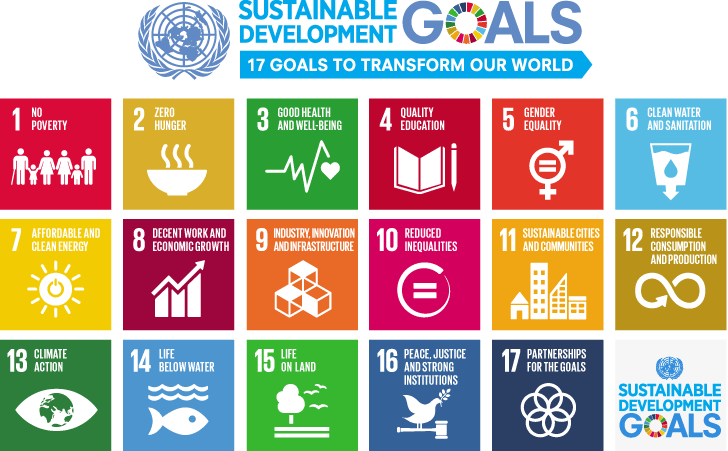
Additionally, with the introduction of the Changemaker Curriculum, service-learning began to play more of a critical role at THINK Global School. Students now participate in a service-learning project each term where they are encouraged to use their academic knowledge and skills to address genuine community needs.
As an example, during our recent CM2 term in Panama, students selected to work with one of three organizations: Vital Voices, which focuses on empowering women by promoting equality, health, and education; Fundación Sembrarte, which focuses on bringing art to marginalized communities through public installations; and Avifauna, an ecotourism and environmental project and nature site nestled inside of Soberanía National Park.
Prior to graduation, all students must design and complete a service-learning project that addresses a local need in their home country. In this way, we aren’t just helping our host countries but also the communities that have played and continue to play a large role in our students’ lives. Given our year-round calendar, which employs an eight-week-on, five-week-off model, the local community still plays a valuable role in our students’ lives, and we want to guide them in strengthening their ties to it and improving the lives of those who call it home.
Building Mastery and Narrowing the Learning Gaps
Through the Changemaker Curriculum, we encourage students to find their calling in life by mastering the skills they truly care about. Some students pursue a digital route by building their knowledge in competencies like computer science or graphic design, others hone their expertise in art, while others gain hands-on experience in one of the five branches of science. Regardless of what they choose to excel at, all knowledge acquisition at THINK Global School is tied to the concept of learning targets.
At their core, learning targets provide a measuring stick against which our students can assess their knowledge acquisition during self-directed projects and teacher-led modules. To put it more simply, our learning targets provide a clear statement of what the student and their educators wish to accomplish during a project, while still allowing the student to maintain ownership of their learning.
The Learning Targets categories and subcategories are:
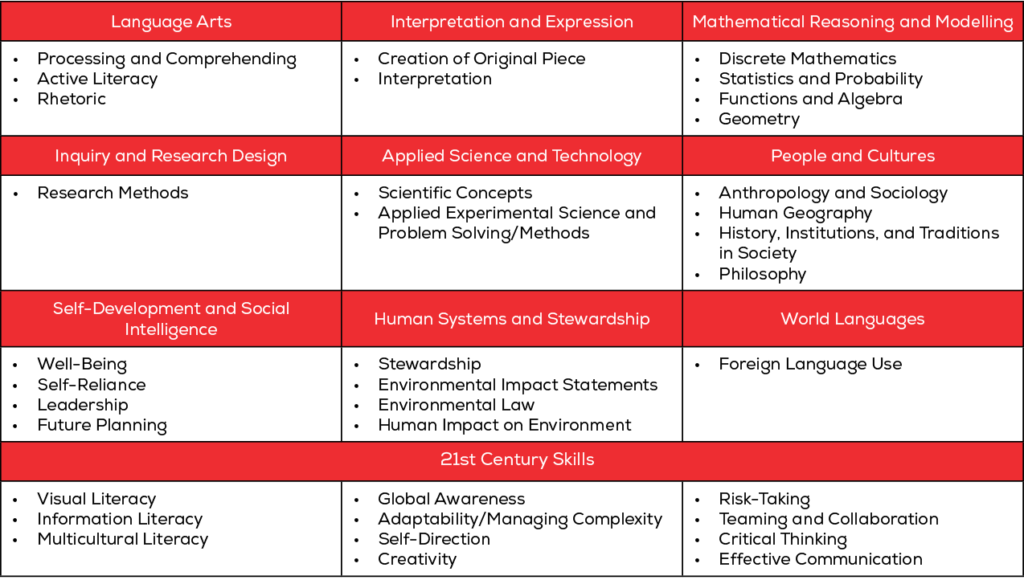
As a student builds skills in a particular learning target, our educators can increase their rank. The three learning target levels are novice, specialist, and master.
To move up in learning target rank, students must demonstrate that they meet that rank’s requirements. To become a novice, they must show a basic level of competence in the selected learning targets by understanding and remembering the learned skills/acquired knowledge. To become a specialist, students need to show a high level of competence by evaluating, analyzing, and applying the learned skill/acquired knowledge. To become a master, a student must show the highest level of competence in the selected learning target by teaching their peers/community their learned skills/acquired knowledge or creating a unique and original solution to a problem.
While we encourage students to master the skills they are passionate about, our learning targets also ensure all students receive a comprehensive education. To graduate from THINK Global School, all students must achieve the rank of novice in all of our learning targets, the rank of specialist in 70% of our learning targets, and complete one mastery project to meet THINK Global School’s graduation requirements. While we don’t expect all of our students to become expert mathematicians, we do expect them to perform up to our accrediting body’s standards, The Western Association of Schools and Conferences (ACS WASC).
Project-based Learning
The final piece in understanding how students learn at THINK Global School is understanding the three types of projects.
Teacher-led Modules
In each country they visit, students select from one of three teacher-led modules (TLM). Each teacher-led module occurs over a full term (eight weeks) and is created and implemented by two educators. All module participants aim to solve the same driving question, but are free to do so however their group best sees fit (with approval from the educators overseeing it).
Each teacher-led module is designed in advance of the term. All relevant assignments, meetings with local experts, and excursions into the field are structured to help students achieve their goals. Rather than sit in a classroom all day, students participate in blocks of time dedicated to project work, with other activities sprinkled in throughout the day.
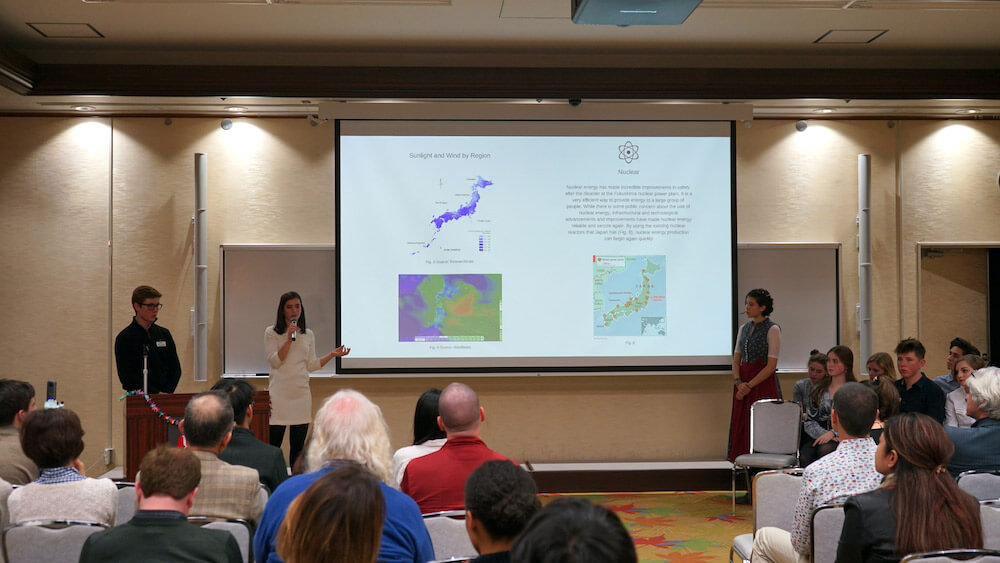
Students present their findings on nuclear energy in Japan
At the end of the term, students present their project work to the public during a Student Showcase. Once the project is complete, they assess their work in the form of a narrative report card, which highlights their successes and areas of improvement. Our educators also weigh in on the student’s work over the course of the term and determine if they “leveled up” in any of the learning targets associated with the project. The narrative report also provides constructive feedback on how the student can refine their skills and improve on areas of weakness in the future.
Personal Projects
In addition to teacher-led modules, the Changemaker Curriculum provides students the agency to engineer projects of their choosing. Doing so allows them to explore the themes and topics they are genuinely passionate about.
Each term, students are encouraged to engage in at least one personal project. These projects can be spread across whatever timeframe the student sees fit. If they’d like to scratch the surface on a subject, they might complete it in one term. But suppose it is a subject they are passionate about. In that case, they might spread it across an entire school year, demonstrating growth and skill mastery to their mentor as they go along.
For personal projects, students collaborate with a mentor to determine the project’s scope and driving question, laying out their expectations in what is known as an excellency paragraph. Upon the project’s completion, the student and educator will review the work and assign grades based upon its quality and whether expectations and learning targets were met. If a student demonstrated significant progress in a particular learning target, the mentor could decide to increase their rank.
Mastery Projects
If a student wishes to continue building up their expertise in a particular theme or learning target, we actively encourage them to do so. And for subjects they are truly passionate about, they might consider basing their mastery project around them. Mastery projects provide students a way to take a comprehensive, self-directed look at an issue. Students who enroll at THINK Global School in the 10th Grade are required to complete two mastery projects before graduation, while students who enroll at THINK Global School in the 11th Grade are required to complete just one.
To complete a mastery project, students:
- Define an area of interest or identify a problem
- Craft a driving question to answer
- Identify community experts to guide their efforts and provide critical feedback
- Receive project approval from the Mastery Project Committee
- Present and defend their conclusions
- Celebrate their successful defense via a Mastery Ceremony
We believe that by building towards mastery during their time at THINK Global School, students will be better positioned for success at university and equipped with the 21st-century skills necessary to make a difference in our rapidly evolving workplace.
Below you can see Class of 2020’s student Soeun Kim’s mastery project, Ecology of the Mind. Soeun set out to create a work of art that explores our world by focusing on its most essential component: the mind. In doing so, Soeun endeavored to answer the following driving question: How can I acquire a deep understanding of Buddhist philosophies and their perspectives on the self and the world by creating an original short film?
Ready to apply?
You can learn more about the admissions process at THINK Global School here.
